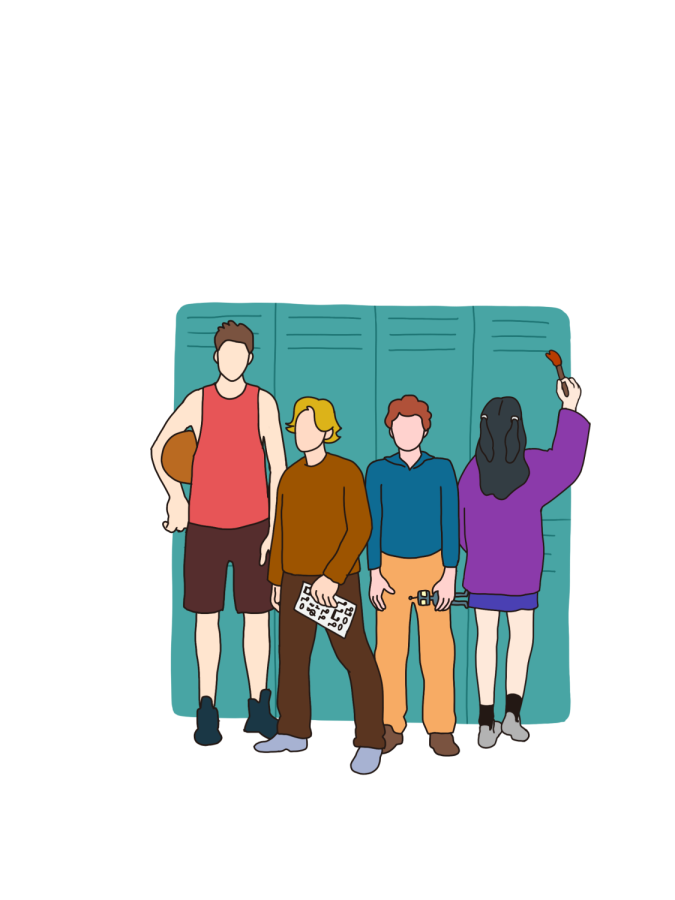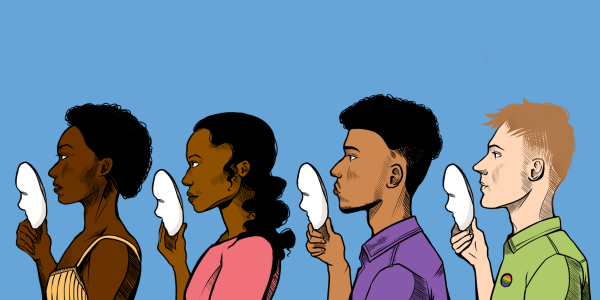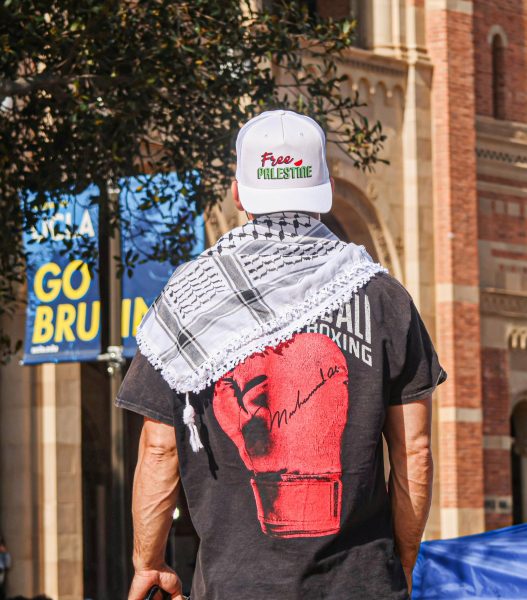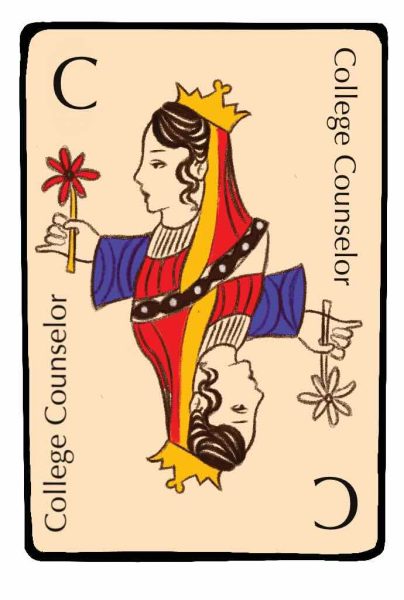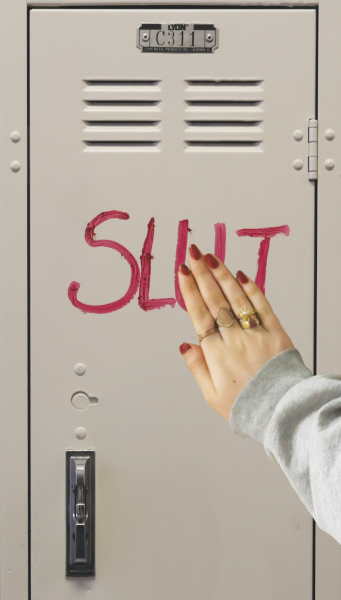A Sacrifice For Success
September 29, 2022
It’s 7 a.m. and Brady Dunlap ’23 is getting shots up in the gym. It’s morning now, but during Lunch, Conference Time or the Directed Study period, Dunlap said he can still be found in the gym trying to improve as a basketball player. Dunlap just committed to Notre Dame, which he said is an important step in the fulfillment of his childhood dream to play in the NBA. Last season, Dunlap was a leading scorer for the Wolverines and had multiple clutch shots during the team’s California Interscholastic Federation (CIF) playoff run.
Dunlap said high-performing athletes like himself often feel a significant amount of pressure. Expected to perform at an elite level on the basketball court, Dunlap said that his mental health was often tied to his performance.
“[In] my sophomore and junior year, my self-worth was based entirely on how I played,” Dunlap said. “If I don’t play well, I’m less of a human being in my mind. I go into this obsession mode where I just play basketball 24/7 , and I’m not really happy.”
To deal with his stress, Dunlap said that it was incredibly important for him to find an outlet to get away from basketball. Dunlap said he has enjoyed fishing since he was younger, but began meditating during his sophomore year, which helped him to stay grounded when things got difficult.
“I was struggling with confidence,” Dunlap said. “[My coach] told me that if I could be more mindful about everything that’s going on and be more observant, be more appreciative then my life would become more well rounded.”
As Dunlap became more consistent with his routine, he said that he began to see results in his play as he felt calmer under pressure.
“Basketball is my entire life,” Dunlap said. “I’ve set a ton of goals, and if I don’t meet those goals, to be completely honest, I get depressed, I get super sad, I get anti-social and I don’t talk to people. I become this little bubble that’s just me. I think the meditation aspect — just having a place you can go to and get away from the pressures basketball and the pressures of picking a school, it’s really good for everything.”
Dru Reed ’24, a member of the robotics team, said he experienced similar pressures when pursuing his passions. Reed said that he first took an interest in robots during a tour of his middle school. Though he started with almost no experience, Reed would eventually become a VEX Robotics World Champion, an achievement he said took many long hours of hard work to realize.
“The one big thing about getting good at robotics, and everything else, is that I would have to do things so many times,” Reed said. “If I was building a drive base or some part of the robot, I would do it fifteen times before I got it correct, and each time probably took about two hours to build. In the learning stages, it took more time to understand how to build and good techniques, but once I understood these concepts it was more about developing my problem-solving techniques.”
Like Dunlap, Reed said he also can sometimes become overwhelmed by robotics. To cope with this pressure, Reed said he practices karate.
“When I’m doing robotics and something goes wrong, or I can’t figure one thing out, I can be almost devastated,” Reed said. “Having multiple [interests] allows you to stay sane. If I did robotics every single day, constantly, I might lose my mind.”
Reed and Dunlap’s habits mimic those of purposeful activity, a psychological strategy that uses hobbies to briefly escape from routine, according to the American Occupational Therapy Association. Purposeful activity is known to have many health benefits, including decreasing stress and even helping to improve physical health. In addition to these effects, Reed said that practicing karate offers him skills that also improve his robotics.
“In karate, they give me a bunch of these tools, and then when I’m actually fighting, my job is to take all of these tools and figure out how to fit them all together so I can fight,” Reed said. “It’s kind of the same thing with robotics.”
For some students though, doing multiple activities under the added pressures of school can cause stress rather than relieve it. Henry Brian ’23, who plays the piano, said that it has become increasingly difficult to balance all of his interests.
Every day after school, Brian said he leaves at 3p.m., before briefly stopping at Starbucks and driving nearly an hour to the Colburn School in Downtown Los Angeles. Once there, Brian practices for about four hours, though he said the number increases when he is not in school. Because of his packed schedule, Brian said he often doesn’t get home until extremely late, which means he has very little time for homework.
“Most of my homework gets done during the school day at lunch,” Brian said. “I’m just constantly having to meet with teachers to say ‘I’m having trouble getting this done on time, what do you think is the best studying strategy?’ because I have so little time.”
Similarly, Brian said that it has been nearly impossible to pursue his other interests, such as fishing and sailing, especially during the school year.
“I’ve barely been able to get any fishing done because I’ve just been so busy every second of every day,” Brian said. “Maybe I would be able to on a long weekend, but other than that I can’t.”
Chiara Umekubo ’23, who participates extensively in the painting and visual arts programs, also said it has been hard for her to balance her creative pursuits with normal schoolwork.
“I’ve been struggling a lot with deciding what is important to me and my future and worrying about how much time I should be spending on classes,” Umekubo said. “A goal of mine is still to get good grades. Even though [art school] may not care about it as much, it’s still very important to me.”
Umekubo said art has always been a passion of hers, but it became far more serious when she realized she wanted to pursue it as a career.
“In ninth grade, my friend told me that she had a mentor who was a character designer for Rick and Morty,’’ Umekubo said. “She started mentoring me and talking to me about entertainment design, and that’s when it really clicked. People have jobs [where] you can make a living off designing for film, games and [television] shows.”
While Umekubo also plays the clarinet, she said she has taken art more seriously than any other extracurricular. In addition, Umekubo wants to attend art school, a path she said is considered different compared to the rest of the school community.
“Generalizations can be really harmful,” Umekubo said. “Our school’s culture kind of encourages one view of the HW student, [so] people have one idea when you say you’re into art. Usually they assume you’re going to apply to [Rhode Island School of Design] or Yale or some really fancy fine arts school because that’s what Harvard-Westlake art kids have done in the past. Parents will stop talking to my mom after they ask what school I want to go to cause they’ve never heard of it, so they just don’t bother making a connection. It kinda feels like what you’re doing is wrong.”
In one case, Umekubo said a teacher asked her what she did outside of art, a question she didn’t have an answer to at the time.
“It was almost like I wasn’t living up to a standard,” Umekubo said. “Obviously I don’t think he meant to make me feel like that, but it reflects a sort of expectation that Harvard-Westlake students have to be really accomplished in many different things, and if you aren’t it’s odd—especially if your one thing isn’t looked at as what’s traditionally acceptable for someone who’s going here.”
Though Umekubo said the school’s environment occasionally creates doubts about the path she has chosen, she hopes to improve her mindset in the future.
“Everyone [at the school], to a degree, is very hard on themselves,” Umekubo said. “They all want to impress everyone else and impress themselves, and it’s all about how you want to be seen and what you want to do. That’s a huge question here. So yes, I constantly doubt myself, but it’s something I’m working on.”































